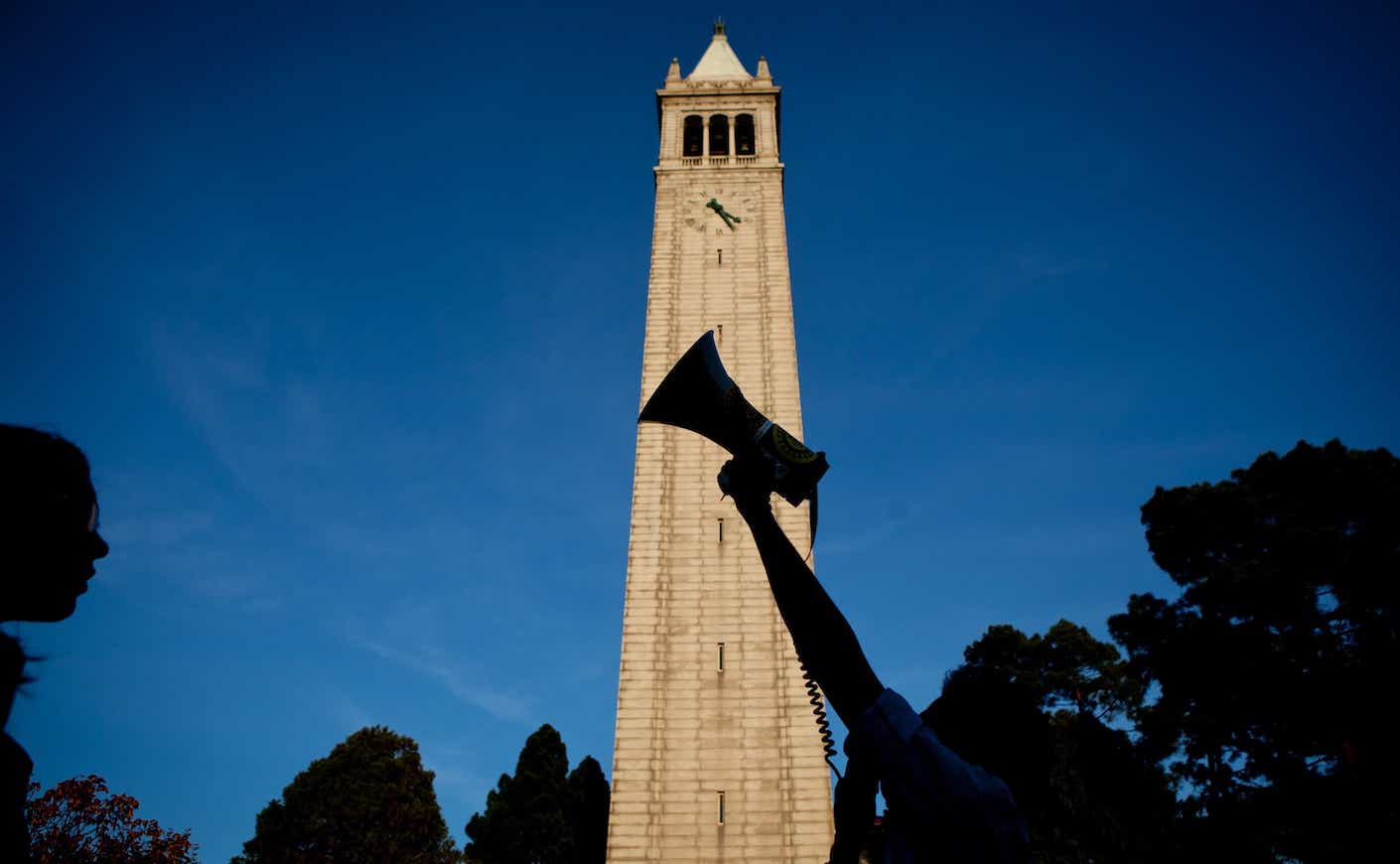American academic institutions are still grappling with how to respond to the war between Israel and Hamas as the conflict reverberates across campuses. Wealthy donors have essentially been pitted against college presidents, and students against staff.
This has presented a unique conflict within a conflict, so to speak. After the attacks, some universities rushed to release statements, in many cases voicing their support for Israel, but not all of those statements were received well by their student communities. Some university responses (or lack thereof) were met with or contradicted protests from activist groups on campus, deepening a rift between students and faculty that in many cases, already existed.
These reactions give a new-found urgency to a long-divisive topic, according to Kristen Shahverdian, who runs nonprofit PEN America's programming around free expression best practices — including for college administrators, students, and faculty. “Issues between Palestine and Israel specifically have been contentious on campuses for many, many years,” she tells us. “The war right now with Hamas has really exposed that and brought it to light even more.”
How have colleges handled the Israel-Hamas war?
Just because the war highlights some existing ideological splits doesn’t mean the colleges are necessarily already equipped to handle its challenges. Some colleges, like Columbia University, were criticized for being too slow in issuing a response. But regardless of when a statement is issued, Shahverdian says what really matters is how clear their messaging is and how they’re supporting students. “A statement is just a statement if they're not following it up with actual steps to keep students safe and educate the community at large,” she tells us.
The ones that did issue statements, namely in support of Israel — such as Northwestern University and George Washington University — saw swift backlash from pro-Palestinian movements on campus and had to reinforce their stance in the aftermath. For instance, Harvard University initially released a statement following the Oct. 7 attack saying they were "heartbroken by the death and destruction unleashed by the attack by Hamas that targeted citizens in Israel,” while a coalition of pro-Palestinian student groups released a letter holding "the Israeli regime entirely responsible for all unfolding violence." But following backlash from alumni, Harvard president Claudine Gay published a second statement saying those remarks from the students weren’t representative of the university.
Emory University in Atlanta, Georgia saw a similar situation play out. The university’s president, Gregory L. Fenves, condemned a rally on campus, where protestors repeatedly shouted antisemitic phrases. “I cannot be more clear — this kind of rhetoric has no place at Emory. I am appalled by this behavior,” Fenves said in a statement to students, alumni, and faculty. “It violates our core values, particularly our commitment to creating an inclusive environment for all who learn, work, and live on our campuses.”
What are the larger implications?
In the wake of these protests, some civil rights groups believe university leadership has a responsibility to condemn hate on campuses amid a dramatic rise in antisemitism. The Anti-Defamation League reported last week that antisemitic incidents have risen by about 400 percent in the two weeks following Hamas’ Oct. 7 attack. “It is incumbent on all leaders, from political leaders to CEOs to university presidents, to forcefully and unequivocally condemn antisemitism and terrorism,” Jonathan Greenblatt, Anti-Defamation League CEO, wrote in the statement.
Given this stark rise in anti-semitic sentiment in response to Hamas’ attack, it’s understandable that some colleges have faced blowback for not strongly condemning the atrocities committed by the group. University of Pennsylvania alumni Jon Huntsman Jr., whose family has donated at least $50 million to the school, said in an email to Penn President Liz Magill that they would be halting contributions due to administrators' “almost unrecognizable” response to antisemitism. "Moral relativism has fueled the university’s race to the bottom and sadly now has reached a point where remaining impartial is no longer an option," he wrote to Magill. Columbia University and Harvard University have also faced financial threats from influential donors for similar reasons.
In light of this backlash, a coalition of more than 100 public and private, faith-based institutions — such as Yeshiva University and the University of Notre Dame — banded together to condemn Hamas in a joint statement, comparing them to other terrorist groups like ISIS. “The basis of all universities is a pursuit of truth, and it is times like these that require moral clarity,” they wrote. “Like the fight against ISIS, the fight against Hamas is a fight against evil.”
Ultimately, Shahverdian hopes colleges and universities will take a more thoughtful and proactive approach as the conflict continues to unfold, whether that's providing resources to make sure students feel safe or forums to help educate the community about the complexity of the conflict in the Middle East.
“Institutions would be served well, especially as we move through this ongoing conflict, to really reflect on how they’re going to make statements moving forward, including what their policies and parameters are on how they're making those decisions,” she says.









